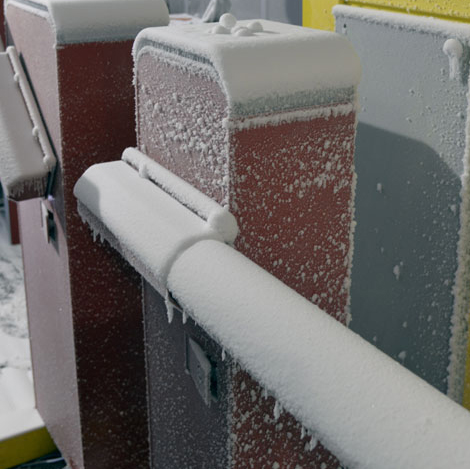04 Mar 2021
Direct manufactures of automation for gates
What does it mean to be a direct manufacturer of automation devices for the automatic opening of gates?
What makes this aspect a significant benefit for the installer?
We need to make a brief premise: for the installer, the organisation of the working day is a crucial factor; time management is therefore one of the most important and indispensable resources of his professional activity.
To optimise the time available to the installer, it is essential that the automation systems for gates are easy and intuitive to install and that they are reliable: namely, that they do not require subsequent interventions after installation.
If we were to summarise these concepts in two words: ease of installation and reliability.
Internal production and product reliability
The history of Comunello began in 1965, with the design and construction of automotive moulds; an activity that required great precision and mechanical knowledge.
The evolution of the company over the years has allowed us to establish solid expertise in precision mechanics; that is, a set of manual and intellectual skills, knowledge and competence.
This precious heritage, comprised not only of knowledge but also of a manufacturing structure, foresight in investments and human capital, has allowed us to develop the Gate Automation division that, starting from the design and arriving at the finished product, provides the market with a complete range of electromechanical actuators for gates.

Having full control of the processes allows us to select and control them.
For us, selecting and directly processing the raw materials means maintaining a high quality standard even from the moment of the product’s creation.
Internally controlling all phases, from design to final testing, allows us to have full control over the finished product.
Product development test
In the research and development phase of a product, we follow a sequential process of APQP activity, of automotive derivation, which allows us to first identify the most suitable technological standards (materials, solutions, etc.) and then to monitor and correct with interventions aimed at obtaining a product that fits the required specifications.
For this delicate design phase, we have prepared a series of tests covering both the mechanical and electronic parts of the product.
The tests the devices undergo, whether actuators, control panels or accessories, reproduce product life cycles under all foreseeable stress conditions:
- Continuous cyclic life tests of opening and closing or activation at oversized loads to ensure their reliability. In the specific case of actuators, structures are used that can be loaded over the limit or in the case of barriers, loading the equipment to the maximum to simulate maximum stress.
- Extreme life cycle tests at extreme operating conditions such as continuous inversions for sliding gates and barriers, operation even with externally-generated noise disturbance in the case of electronic and related devices.
- Tests in extreme temperature conditions that consist of cyclical life or function tests both at very low temperatures and at high temperatures to verify, discriminate and solve any problems that may arise in these conditions.
- Debug tests to check for unpredictable behaviour that does not conform to expectations. This means that the general basic features are tested and then all the less frequent “particular” conditions in the life of the product are verified. These are conditions that can generate unforeseen operation that can put the installer or user in difficulty.
To carry out all these activities, all our production plants have specific areas with dedicated personnel.

Control and testing directly in production
Being direct manufacturers of products allows us full control during the mass production phase.
What exactly does that mean?
The control through a test protocol during production allows us to evaluate the quality of each individual component, improve the yield of the production line and the cost-effectiveness of resources; ensuring compliance with R&D specifications and market expectations as well as drastically reducing the possibility of error during the final testing phase.
In this context, all our electronics are 100% tested before entering the assembly line, where they are then tested once again at the end of the line.
By controlling production we can intervene before the problem arises on the finished product.
Testing at the end of the assembly line
Every single product is regularly tested at the end of the assembly line.
Our production uses automated and manual assembly lines composed of specialised operators, who, at the end of the assembly process, test the product through a process of ignition and measurement of parameters characterising the conformity of the same.
These can be drive force, speed, unlock operation and many more parameters.
The final labelling of the product is guaranteed only after the final test has been successful, therefore, it is a guarantee of this process.




